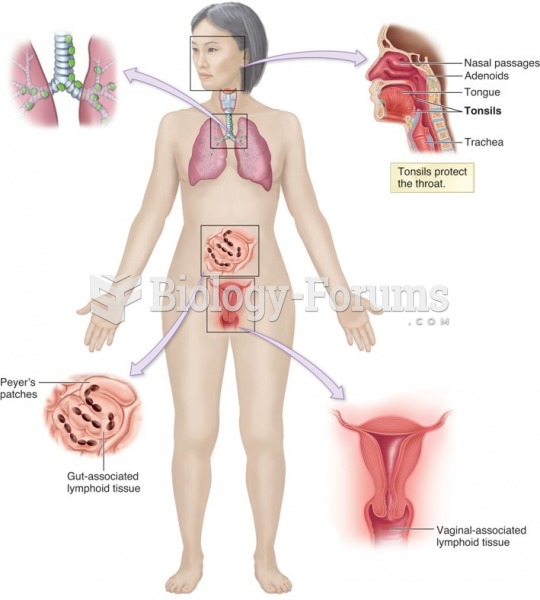|
|
|
Pope Sylvester II tried to introduce Arabic numbers into Europe between the years 999 and 1003, but their use did not catch on for a few more centuries, and Roman numerals continued to be the primary number system.
According to the Migraine Research Foundation, migraines are the third most prevalent illness in the world. Women are most affected (18%), followed by children of both sexes (10%), and men (6%).
The most common treatment options for addiction include psychotherapy, support groups, and individual counseling.
Human neurons are so small that they require a microscope in order to be seen. However, some neurons can be up to 3 feet long, such as those that extend from the spinal cord to the toes.
No drugs are available to relieve parathyroid disease. Parathyroid disease is caused by a parathyroid tumor, and it needs to be removed by surgery.
 Scaling the Earth down to the size of a basketball, the Moon is roughly the size of a tennis ball. T
Scaling the Earth down to the size of a basketball, the Moon is roughly the size of a tennis ball. T
 If raising a vehicle without a frame, place the flat pads under the pinch weld seam to spread the ...
If raising a vehicle without a frame, place the flat pads under the pinch weld seam to spread the ...
 Mucosa-associated lymphoid tissue (MALT), including tonsils, adenoids, and gut-associated lymphoid ...
Mucosa-associated lymphoid tissue (MALT), including tonsils, adenoids, and gut-associated lymphoid ...
 Pin the skin and subcutaneous fascia on a spot on the back using the thumb of one hand; place the ...
Pin the skin and subcutaneous fascia on a spot on the back using the thumb of one hand; place the ...



